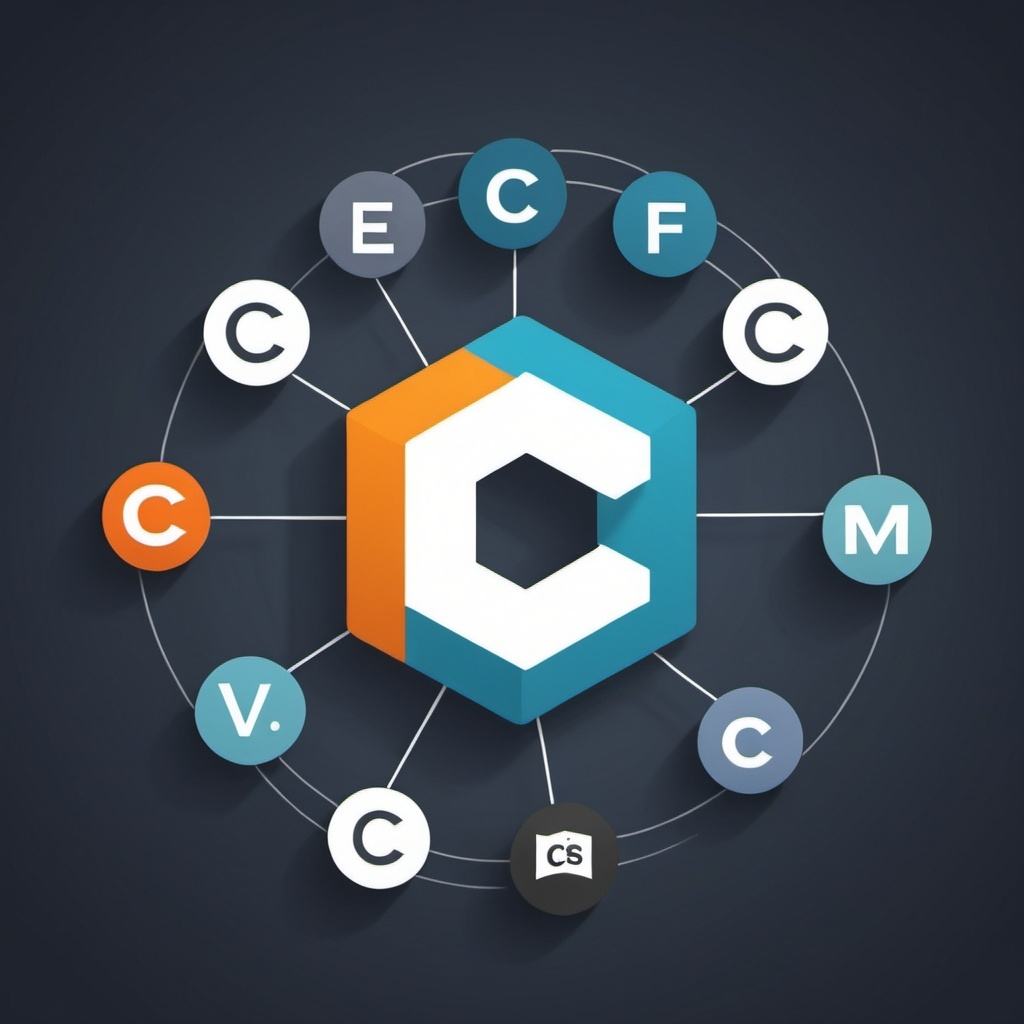The C family of programming languages has been a cornerstone of software development for decades. Comprising C, C++, and C#, this linguistic trio has shaped the landscape of modern computing. Each language, while sharing a common ancestry, has evolved to meet distinct needs in the programming world. Let’s delve into the intricacies of these languages, exploring their unique features, applications, and the scenarios where each shines brightest.
C: The Progenitor of Modern Programming
C, the patriarch of the family, emerged in the early 1970s and revolutionized the world of programming. Its simplicity, efficiency, and portability quickly made it the lingua franca of system programming. C’s influence is ubiquitous, forming the backbone of operating systems, embedded systems, and high-performance applications.
Key characteristics of C include:
- Low-level control: C provides direct access to memory and hardware, making it ideal for system-level programming.
- Portability: Code written in C can be easily ported across different platforms with minimal modifications.
- Efficiency: C’s close-to-the-metal nature allows for highly optimized code execution.
- Simplicity: The language has a relatively small set of keywords and a straightforward syntax, making it accessible to beginners.
C remains indispensable in scenarios requiring fine-grained control over system resources, such as operating system kernels, device drivers, and real-time systems. Its legacy continues to influence modern programming paradigms, making it a crucial language for aspiring developers to master.
C++: Object-Oriented Evolution of C
C++ emerged as an extension of C, introducing object-oriented programming (OOP) concepts while maintaining backward compatibility. This evolution allowed developers to leverage the power of OOP without sacrificing the performance benefits of C. C++ has become the go-to language for applications requiring both high-level abstractions and low-level control.
Distinctive features of C++ include:
- Object-oriented programming: C++ supports encapsulation, inheritance, and polymorphism, enabling modular and reusable code design.
- Templates: This powerful feature allows for generic programming, enhancing code reusability and type safety.
- Standard Template Library (STL): A rich collection of container classes and algorithms that significantly boost productivity.
- Multiple paradigms: C++ supports procedural, object-oriented, and generic programming styles, offering flexibility to developers.
C++ excels in scenarios demanding high performance coupled with complex abstractions. It’s widely used in game development, financial systems, embedded systems, and large-scale software projects. The language’s ability to blend low-level efficiency with high-level abstractions makes it a versatile tool in a programmer’s arsenal.
C#: Microsoft’s Modern, Versatile Language
C#, pronounced “C sharp,” is the youngest member of the C family. Developed by Microsoft as part of its .NET framework, C# combines the raw power of C and C++ with modern language features. It’s designed to be simple, type-safe, and object-oriented, making it an excellent choice for enterprise-level applications and game development.
Notable aspects of C# include:
- Managed code: C# runs on the Common Language Runtime (CLR), which provides automatic memory management and enhanced security.
- Language Integrated Query (LINQ): A powerful feature for querying various data sources using a SQL-like syntax.
- Asynchronous programming: C# offers robust support for writing non-blocking, scalable applications.
- Cross-platform development: With the advent of .NET Core, C# can now be used to develop applications for Windows, macOS, and Linux.
C# shines in developing Windows desktop applications, web applications using ASP.NET, and games using Unity. Its integration with the .NET ecosystem and Microsoft’s development tools makes it a productive choice for enterprise software development.
Choosing the Right C Language for Your Project
Selecting the appropriate C family language depends on various factors, including project requirements, performance needs, and development ecosystem. Here’s a quick guide to help you choose:
- Choose C when you need low-level control, maximum performance, or are working on system-level programming.
- Opt for C++ when you require both performance and the benefits of object-oriented programming, especially for large-scale applications or game development.
- Select C# for rapid application development, especially in the Microsoft ecosystem, or when working with Unity for game development.
Remember, these languages are not mutually exclusive. Many projects benefit from using a combination of these languages, leveraging the strengths of each where appropriate.
The Future of C Family Languages
As the software development landscape evolves, so do the C family languages. C continues to be the bedrock of system programming, with ongoing refinements to the language standard. C++ is embracing modern features like concepts and modules, enhancing its capabilities for large-scale software development. C# is expanding its cross-platform reach and incorporating functional programming paradigms.
The enduring popularity of these languages is a testament to their power, flexibility, and the robust ecosystems they’ve fostered. As we look to the future, the C family languages are poised to remain at the forefront of software development, adapting to new challenges while maintaining their core strengths.
Conclusion: The Enduring Legacy of C Family Languages
The C family of languages – C, C++, and C# – represents a spectrum of programming paradigms and capabilities. From the low-level efficiency of C to the object-oriented power of C++ and the modern versatility of C#, these languages offer solutions for a wide range of programming challenges. Understanding the strengths and use cases of each language empowers developers to make informed decisions and leverage the right tool for each job.
As you embark on your programming journey or seek to expand your skillset, consider exploring these languages in depth. Each offers unique insights into programming concepts and paradigms, contributing to a well-rounded understanding of software development.

Explore TechTalent: Elevate Your Tech Career
Ready to take your interactive walkthrough skills to the next level?
TechTalent offers opportunities to certify your skills, connect with global tech professionals, and explore interactive design and development.
Join today and be part of shaping the future of interactive walkthroughs!
